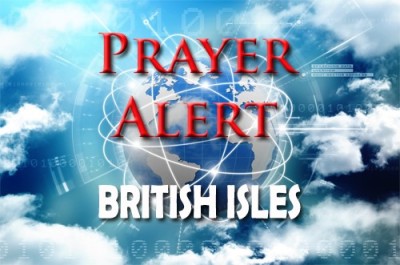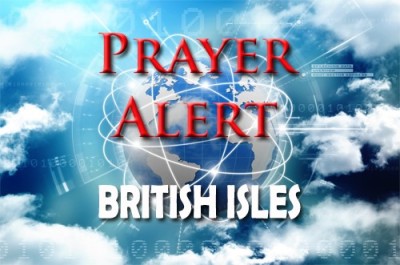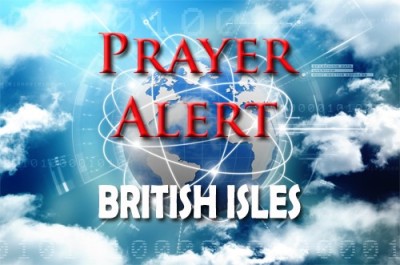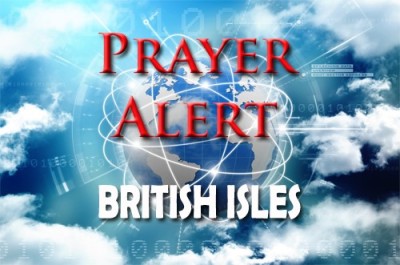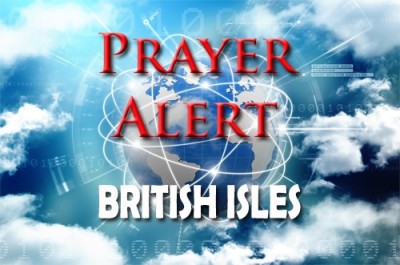Bursaries for trainee RE teachers to be axed
17 Oct 2025The decision to remove bursaries for trainee Religious Education (RE) teachers has sparked alarm among church and education leaders, who warn it will deepen an already severe recruitment crisis. The Government’s new funding guidance for 2026–27 excludes RE, English, music, and art and design from bursary eligibility. Last year, RE trainees received £10,000 in financial support - a measure credited with boosting applications by 40%. The RE Policy Unit, representing national teaching bodies, called the cut ‘devastating’, noting that current recruitment stands at just 54% of target. The CofE’s chief education officer, Rev Nigel Genders, said the decision threatens efforts to build ‘religious literacy’ and mutual understanding in an increasingly polarised society. RE is compulsory in all state schools, yet many lessons are taught by non-specialists due to shortages. Advocates argue that restoring bursaries is essential not only for education quality but also for social cohesion and informed citizenship.
UK economy: encouraging forecast by IMF
17 Oct 2025The IMF has forecast that the UK will be the second-fastest-growing economy among the G7 nations this year - behind only the USA - despite ongoing global trade tensions. The IMF projects UK growth at a modest 1.3% in both 2025 and 2026, signaling resilience but also stagnation compared with past performance. Per capita growth, at less than 0.5%, remains the weakest in the G7. Inflation, however, continues to cloud the outlook: the UK is expected to record the highest price rises among advanced economies, driven by elevated energy and utility costs. The IMF anticipates inflation will ease to 2% by late next year, yet households still face financial strain. Rachel Reeves, attending the IMF’s Washington meetings, pledged to tackle what she called a ‘stuck’ economy, while the Bank of England urged caution on rate cuts. Amid geopolitical uncertainty and trade disruptions, Britain’s challenge is how to sustain growth without deepening inequality. Reeves has recently hinted that she may raise some taxes in the November budget: see
NHS: will new cell therapy be a game-changer?
17 Oct 2025Scientists are pioneering a revolutionary cell therapy that could make the current treatments of autoimmune diseases such as Crohn’s disease and multiple sclerosis obsolete: Led by Professor Ye Htun Oo at the University of Birmingham, the project uses a patient’s own regulatory T cells to retrain the immune system, combating harmful autoimmune responses which lead to organ failure. This innovative approach may soon replace traditional treatments which often cause serious side effects such as hypertension, diabetes, and cancer risk. With more than 8,000 people currently awaiting transplants in the UK, and each procedure costing up to £100,000, the potential savings to the NHS are immense. The therapy, expected to be available within a decade, could transform the treatment of autoimmune liver disease and related conditions, offering hope for longer, healthier lives without dependency on harsh medications. While further trials are needed, experts describe this research as a ‘game-changer’ for modern medicine.
The full environmental impact of the proposed Rosebank oil field, the UK’s largest undeveloped fossil fuel site some eighty miles north-west of Shetland, has now been revealed - and it is vast. The developers, Equinor and Ithaca Energy, have admitted that burning Rosebank’s oil and gas could release nearly 250 million tonnes of carbon dioxide over 25 years, equivalent to two-thirds of the UK’s current annual emissions. The figure, which dwarfs earlier estimates, follows a court ruling requiring a full assessment of the climate impact not just of extraction, but of using the fuels themselves. Environmental groups, including Greenpeace and Uplift, call the figures a stark warning that Rosebank is incompatible with Britain’s 2050 net-zero goal. The Government’s final decision, due after public consultation closes in November, will test its climate credibility. While the developers claim the emissions are ‘not significant’, critics insist that approving Rosebank would lock the UK into decades of pollution and contradict its clean energy ambitions.
Scottish first minister John Swinney’s plan to launch 15 new GP- and nurse-led walk-in health centres has sparked debate among medical leaders about staffing and feasibility. The proposal aims to ease the ‘8 am rush’ for appointments by offering no-booking consultations from noon to 8 pm, seven days a week, potentially adding a million more appointments annually. However, doctors’ groups, including the Royal College of General Practitioners (RCGP) in Scotland, say they were not consulted and question how the services will be staffed given a declining full-time GP workforce. Although the number of doctors in Scotland has risen slightly since 2015, many now work part-time, and the number of GP practices has fallen by 10%. Health secretary Neil Gray insists Scotland’s record 1,200 GP trainees can help fill gaps, but critics warn that workforce pressures and unclear logistics could limit the scheme’s success. The initiative highlights growing tension between political ambition and the realities of primary care delivery.
In contrast to many Western nations, Spain is charting an independent path on migration and relations with Africa. While the USA, UK, France, and Germany are reducing development aid, prime minister Pedro Sánchez is deepening his country’s engagement with Africa through investment, diplomacy, and dialogue. The socialist-led government’s strategy emphasises shared prosperity, education, and sustainable growth, reflecting Madrid’s belief that Europe and Africa ‘form part of the same geopolitical space’. Alongside this vision, Spain continues to experience migration pressures, with 45,000 crossing from Africa to Spain or the Canary Islands in 2024. Yet unlike many European leaders, Sánchez acknowledges migrants’ contributions and backs ‘safe, orderly, and regular’ mobility schemes such as ‘circular migration agreements’ which give West Africans short-term visas to come to Spain for limited periods of seasonal work, mainly in agriculture, and then return. By coupling realism with empathy, Sánchez is seeking to balance security with solidarity, presenting a model of cooperation rooted in dignity, opportunity, and mutual benefit.
Greece is poised to introduce one of Europe’s most controversial labour reforms - a thirteen-hour workday for private-sector employees. The new legislation, expected to pass parliament despite widespread protests, would allow workers in industries such as manufacturing, retail, and hospitality to take on a sixth workday and extended hours, with higher pay for overtime. The government argues that this flexibility will help address labour shortages and support economic growth amid an aging population. However, unions and opposition leaders have condemned the move as a step backward, heightening job insecurity, disrupting work-life balance and legalising overexploitation. One in five Greeks works more than 45 hours a week, the highest rate in the EU, and outdone by only four other countries in the world; low salaries force many to work two jobs to cover the soaring cost of living, in particular high housing costs. Officials insist the extra hours will be voluntary and regulated, but many groups are deeply sceptical.
Israel and Hamas have taken a crucial first step toward ending the devastating two-year war in Gaza, releasing hostages and prisoners under a US-brokered ceasefire. The exchange brought immense relief and celebration across Israel and Gaza, even as both sides remain wary. Yet, the deeper challenges - Hamas’s refusal to disarm, Israel’s reluctance to accept a Palestinian state, and questions over Gaza’s future governance - still threaten the deal’s stability. For many, the sight of freed hostages reuniting with loved ones offered a rare moment of shared humanity amid years of grief. In Gaza, war-worn families welcomed returning prisoners but faced the grim reality of shattered homes and a crippled economy. As Donald Trump signed a declaration for peace, witnessed by twenty world leaders (see ), both Israelis and Palestinians have to grapple with the cost of vengeance and the fragile hope of renewal. The region stands at a crossroads between restoration and relapse into conflict.
